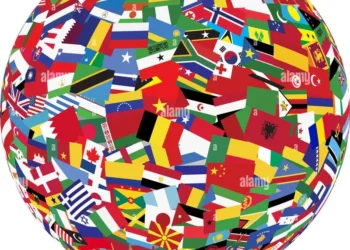In today’s fast-changing world, education doesn’t stop after graduation. The rise of adult education has transformed it into a $100 billion global sector, driven by the need for lifelong learning, career transitions, and professional development. As industries embrace technological advancements, globalization, and automation, adults across the globe are returning to learning platforms to stay competitive, improve their skills, and adapt to an evolving job market.
This exponential growth isn’t just a result of individual ambition—it reflects corporate investments, government support, and the widespread adoption of digital learning. Adult education now plays a pivotal role in upskilling the workforce, supporting economic growth, and fostering innovation, making it a key pillar of today’s knowledge-driven economy.
1. Lifelong Learning: A Modern Necessity
The nature of work has evolved dramatically, driven by automation, globalization, and technological disruption. Unlike in the past, when education was confined to one’s youth, lifelong learning is now a necessity for professionals across all industries. The demand for continual skills development to remain relevant in a fast-changing job market has significantly boosted adult education.
As industries adapt to digital transformations, new job roles emerge, requiring specialized knowledge and training. Adult learners recognize that upskilling and reskilling are critical to securing better opportunities and maintaining job stability. Whether pursuing new certifications, gaining digital literacy, or enhancing soft skills like leadership, adult education has become the tool for workforce competitiveness. This shift has resulted in a growing demand for programs tailored specifically for working professionals, contributing to the sector’s impressive growth.
2. The Impact of Technological Advancements
Technology has revolutionized the delivery and accessibility of adult education. Online learning platforms such as Coursera, Udemy, LinkedIn Learning, and edX have made quality education affordable, flexible, and widely accessible. These platforms cater specifically to adult learners, enabling them to study at their own pace while balancing work, family, and personal commitments.
Short, skills-based courses and micro-credential programs have become particularly popular, allowing learners to gain targeted expertise without pursuing traditional, time-intensive degrees. For example, workers can complete a coding bootcamp, earn a project management certification, or master data analysis in a few months. This flexibility empowers professionals to make swift career advancements or pivot to entirely new fields, thereby contributing to the sector’s steady growth.
Additionally, innovations like artificial intelligence (AI), virtual reality (VR), and adaptive learning platforms have further personalized education, increasing engagement and effectiveness. These technological tools ensure that learning outcomes meet the needs of both individuals and employers.
3. Corporate Investments in Workforce Training
The corporate sector has emerged as a major driver of adult education, with companies investing heavily in employee training and professional development. Businesses recognize that a skilled workforce improves productivity, innovation, and competitiveness. In fact, corporate spending on learning and development has grown substantially in recent years, as organizations prioritize upskilling their employees to keep pace with industry demands.
Industries such as IT, healthcare, and finance lead the way, offering customized training programs, certifications, and professional workshops. For example, companies often partner with educational institutions and online platforms to offer programs in emerging fields like cybersecurity, AI, and data science. Corporate-sponsored learning ensures employees acquire in-demand skills while staying aligned with the organization’s goals, contributing significantly to the global adult education economy.
4. Growing Demand for Career Transitions and Upskilling
Career transitions are another key driver behind the sector’s growth. Economic uncertainty, job displacement, and personal aspirations often motivate adults to seek new opportunities that require additional education and training. For example, workers impacted by automation or economic downturns often turn to adult education to reskill and move into higher-demand roles.
Similarly, individuals pursuing second careers or entrepreneurial ventures rely on adult education to gain critical knowledge and skills. Programs tailored to mid-career professionals, freelancers, and entrepreneurs have become increasingly popular, enabling individuals to remain competitive in an evolving labor market.
Furthermore, the gig economy and freelance work have encouraged adults to expand their skill sets in areas like project management, digital tools, and creative industries, enhancing their earning potential. These trends underscore the growing significance of adult education in facilitating career mobility.
5. Government Policies and Global Initiatives
Governments worldwide recognize that adult education is a vital tool for reducing unemployment, addressing skill gaps, and boosting economic growth. Policymakers are increasingly prioritizing lifelong learning initiatives, offering subsidies, scholarships, and training programs for adult learners.
For example, several European countries, including Germany and Finland, have implemented comprehensive lifelong learning strategies, encouraging continuous education among working adults. In Asia, nations like South Korea and Singapore have invested heavily in workforce development to stay competitive in the global economy. Such initiatives not only empower individuals but also enhance national economic resilience.
Additionally, international organizations like UNESCO promote adult education as a key driver of economic and social development, further boosting its global reach and influence.
6. Expanding Educational Models and Partnerships
The traditional education model has expanded to meet the needs of adult learners, with universities and private institutions offering flexible degree programs, professional certifications, and modular courses. Hybrid and online delivery methods have made education accessible to learners worldwide, further driving participation.
Educational institutions often collaborate with businesses and governments to design industry-relevant programs, ensuring that adult learners acquire skills that are in demand. For example, partnerships between universities and tech companies provide specialized courses in fields like cloud computing, AI, and software development. These collaborations have strengthened the adult education ecosystem, ensuring that it remains responsive to workforce and societal needs.
Conclusion
Adult education has become a $100 billion global sector because it addresses the evolving needs of today’s workforce and economy. The combination of technological advancements, government initiatives, corporate investments, and growing demand for lifelong learning has fueled this transformation.
By providing accessible, flexible, and skills-focused education, the sector empowers individuals to upskill, reskill, and pursue new career opportunities, ensuring both personal and professional growth. As the global economy continues to change, adult education will remain a cornerstone of workforce development and economic progress, driving innovation and competitiveness worldwide.
__________________ Davidson Abraham, is a Dubai-based sports and business writer with about 8 years experience across sports, media & education; currently serving as a ThisDay (GamingWeek) Analyst/Correspondent. He has written with Editors of key media houses, supported international faculties, and involved with social media managing & content development for key institutions in UAE, and Global Education Group partner Universities. He has also written on education, Blockchain, Fintech, Corporate Governance, Sports and Global Politics, as well as assisting with research, book writing and marketing. Davidson is a proud alumnus of Gulf American University, UAE (a part of Girne American University, North Cyprus), and assists students with gaining scholarships for international studies in different universities. Linkedin: https://www.linkedin.com/in/davidson-a-289316233/ Email: davisiano.adm@gmail.com Whatsapp: +971 56 744 6013



















































































 EduTimes Africa, a product of Education Times Africa, is a magazine publication that aims to lend its support to close the yawning gap in Africa's educational development.
EduTimes Africa, a product of Education Times Africa, is a magazine publication that aims to lend its support to close the yawning gap in Africa's educational development.